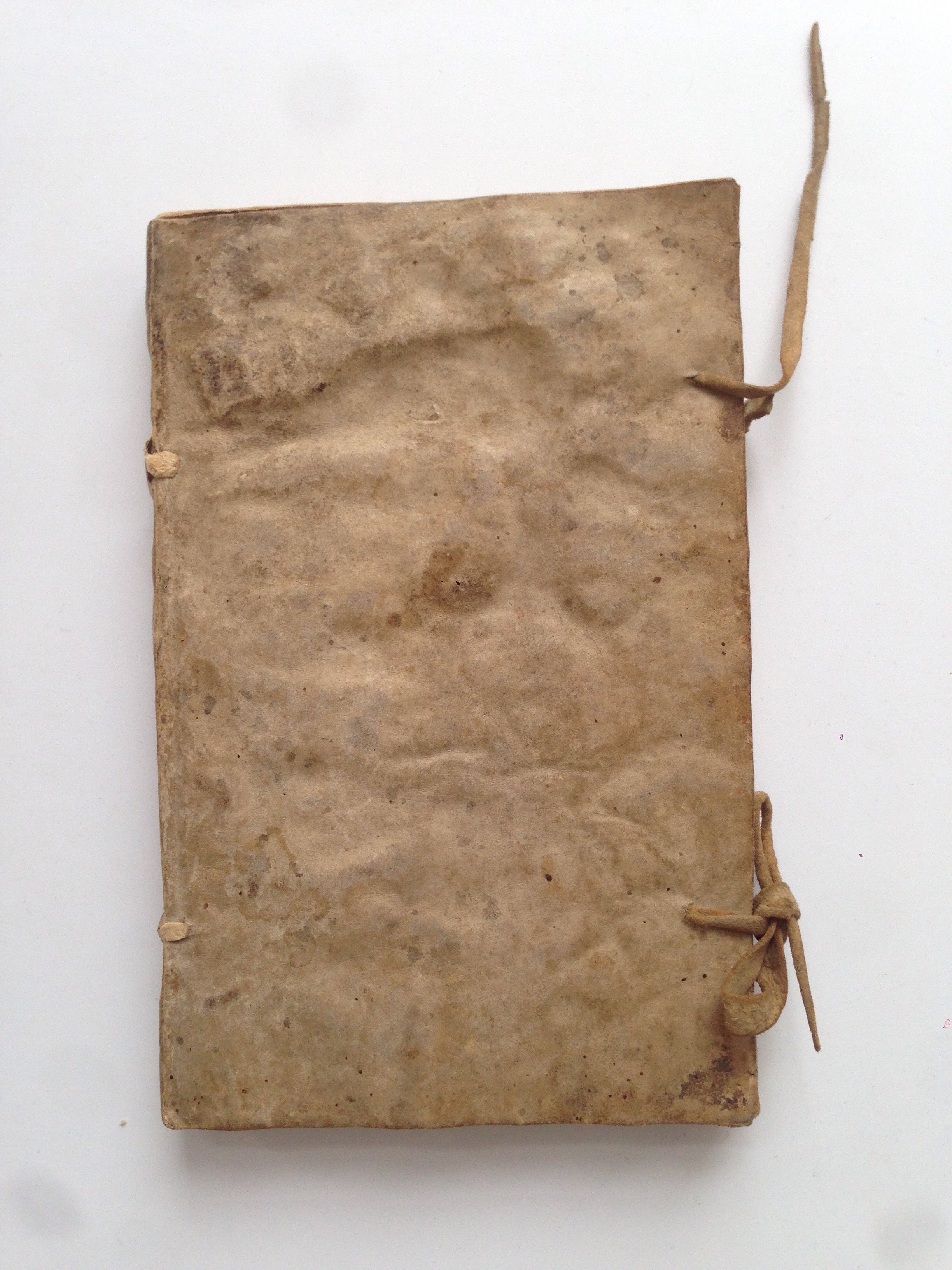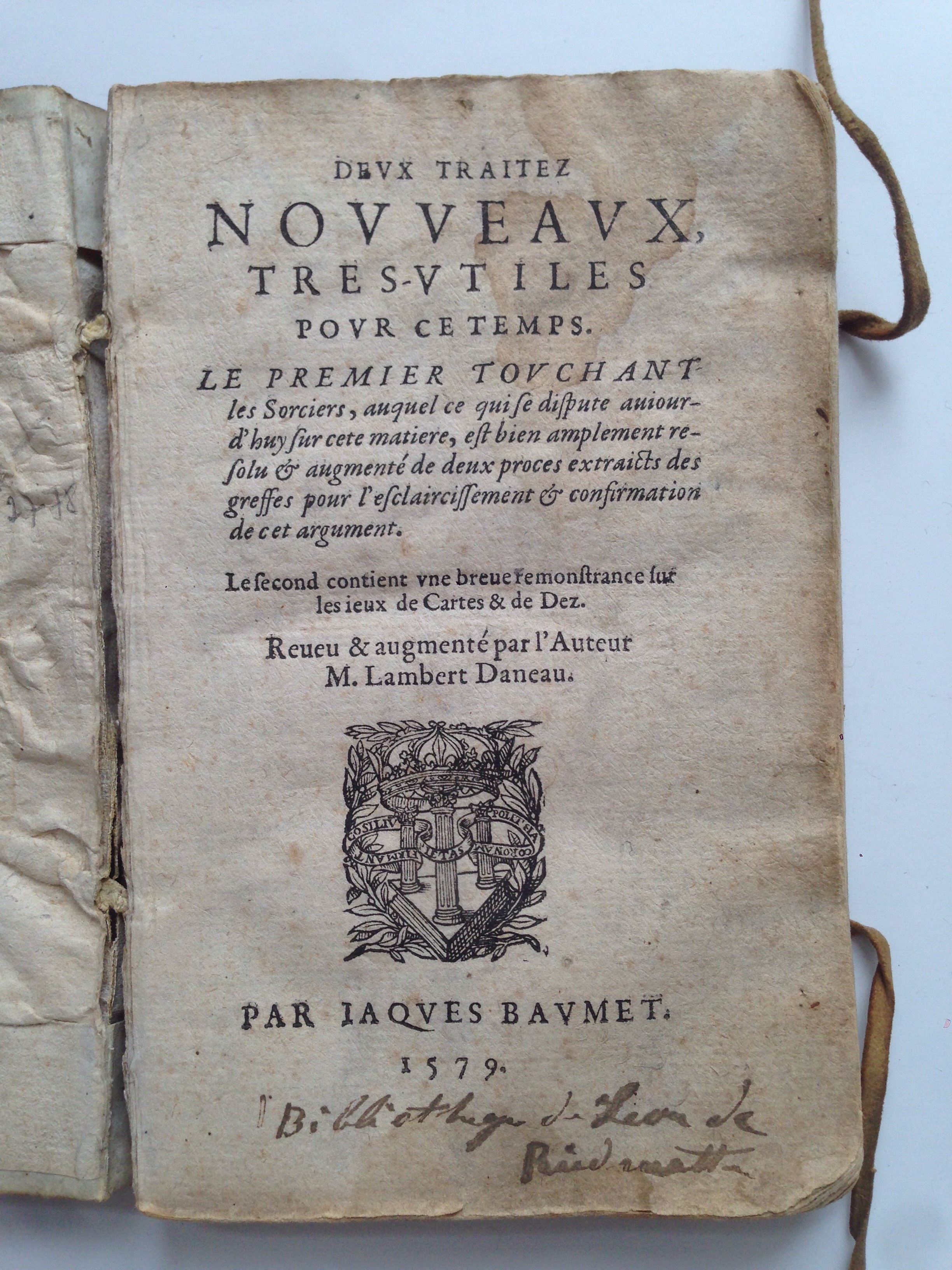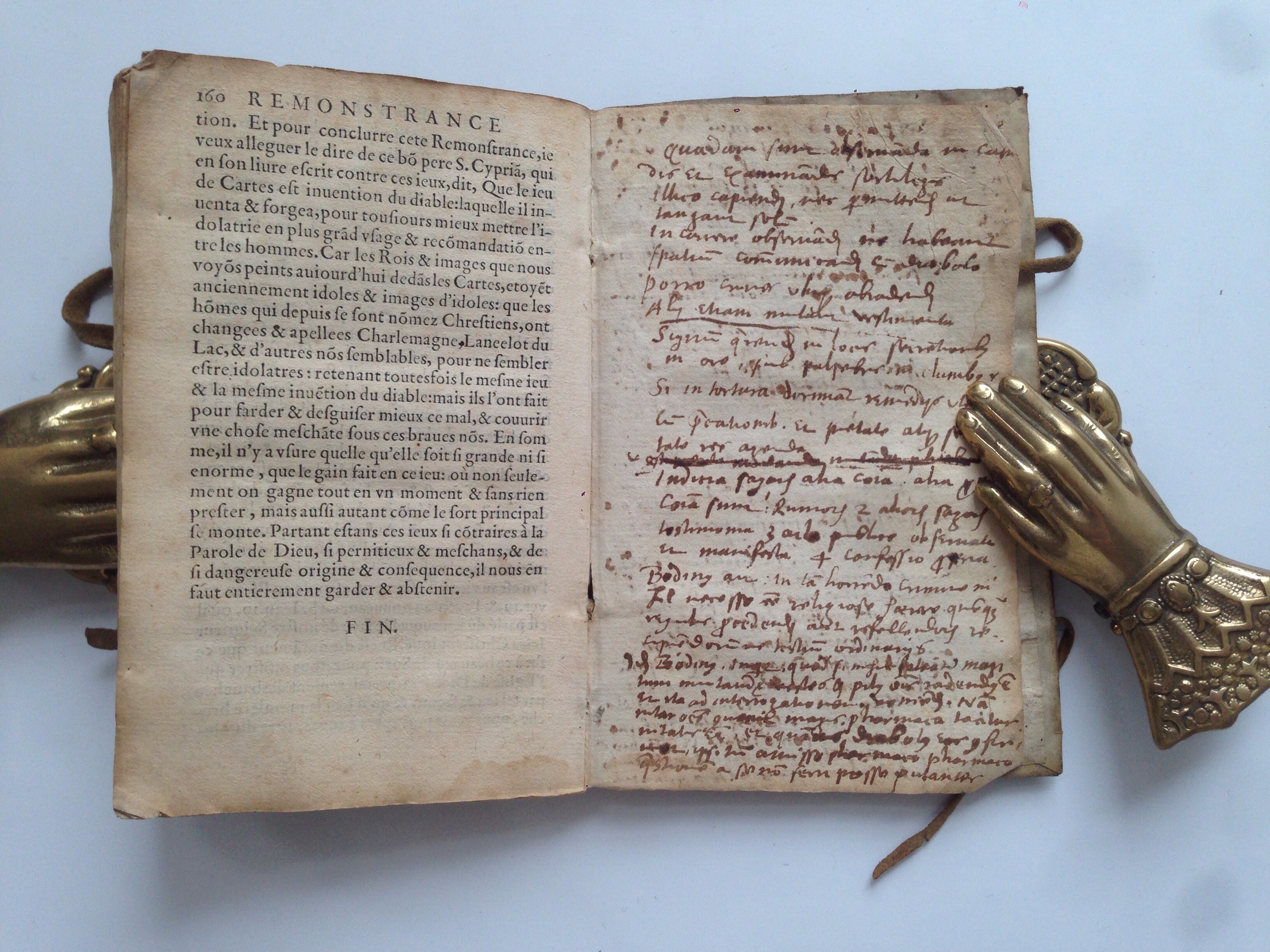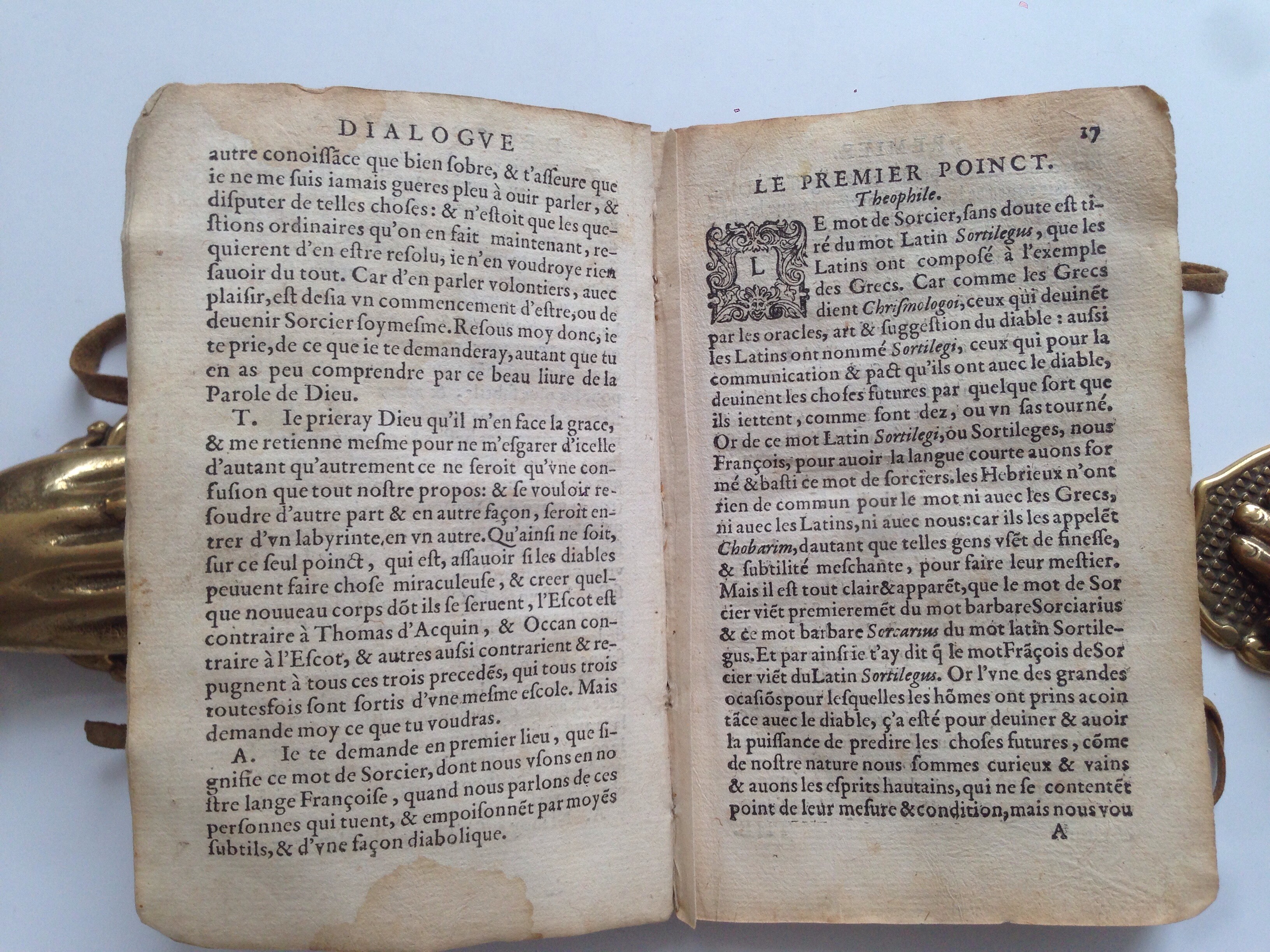DANEAU, Lambert
Deux traitez nouveaux. Le premier touchant les sorciers, Le second contient une breve Remonstrance sur les jeux de cartes et de dez
[Geneva], Par Jaques Baumet, 1579£4,950.00
8vo. Two works in one vol. pp. 160 : ¶8, A-I8. Roman letter, some Italic. Woodcut printer’s device on title, type initials within charming grotesque woodcut borders, woodcut headpieces, “Bibliotheque de Leon de Riedmatten” in a C19th hand at foot of t-p, extensive notes in an early hand on rear fly and pastedown, possibly recipes, occasional marginal notes in the same hand. Minor, mostly marginal, light waterstain, to first and last few leaves, light age yellowing, minor marginal spotting, t-p fractionally dusty, small worm hole in very outer upper blank margin of last few quires. A very good, entirely unsophisticated copy in contemporary limp vellum with ties, vellum a little crinkled and soiled.
First collective edition of these works together in their first French translation; seperately published by Jacques Bourgeois in 1574 and 1575. Daneau’s major work on witchcraft, Dialogus de veneficiis. was translated, first into French and then, in 1575, into English by Thomas Twyne as ‘A Dialogue of Witches.’ “Lambert Daneau, a French Calvanist theologian and Minister, published a treatise on witches in 1574. The book took the form of a dialogue in which one speaker, Theophilus, responded to the occasionally skeptical questions presented to the other speaker, Anthony. The treatise establishes some of the main themes of the late sixteenth and seventeenth-century Protestant demonology. One of the most salient of those features was a heavy reliance on scripture. This biblicism is evident in Daneau’s argument .. that to claim that witches were victims of melancholy was tantamount to the blasphemous denial of the biblical statement that the demoniacs whom Christ cured were also only melancholics and not possessed by demons. A second Protestant theme ..was that the increase in the number of witches was related to the prevalence of superstition and false religion that the Reformation was endeavouring to dispel. ..Calvinists claimed that the age of miracles had ended in biblical times and that magic performed by witches through the power of the devil consisted of nothing more than wonders. Daneau makes this point in his treatise and he also presents the argument .. that the Devil, despite his great power, could only work within the laws of nature. One of the effects of this line of thought was to make the crime of witchcraft primarily a spiritual offence, consisting in the pact wth the Devil. This emphasis is clear in Daneau’s treatise, and it was followed by most of the English demonologists of the late sixteenth and seventeenth centuries.” Brian P. Levack . ‘The Witchcraft Sourcebook.’
Daneau states “The rise of witchcraft was due to the ‘terrible judgement of God against us’ for ‘shamefully and obstinately’ rejecting the true faith. There are four main reason why people choose to become ‘slaves to Satan’: distrust in God, vanity, poverty and power. The most likely sort to fall under his sway are the ‘country men, ignorant and poor people,’ as well as those who are proud of mind, or those in search of knowledge, ‘being desirous to know things to come and fortell them to others .. by which means many of the honourable and learned sort are seduced by Satan.’” Lizanne Henderson. ‘Witchcraft and Folk Belief in the Age of Enlightenment’
The second work is a most interesting treatise on games; specifically of cards and dice. “One of the first Protestants to write on ethical behaviour was a French Calvinist, Lambert Daneau. His books, many of which are translated into English, influenced many English Puritan writers. .. In Chapter 6 of the 1586 translation, Daneau specifies which types of games should be permitted for play among Christians. Games of pure chance, he says, should be forbidden while games of mixed chance and skill are allowable. In the latter situation his reasoning for allowance is that undesirable outcomes obtained through a chance event could be overcome by the industry or skill of the player. Games of pure chance are referred to as ‘alea’ and are defined as those games that hang and depend (as it were) upon mere ‘chaunce of casting’ … Later in the text Daneau says that these practices ‘help the chaunce’. These methods of cheating are obviously ‘skills’ which can overcome undesirable outcomes; however Daneau excludes them from the allowable games of mixed chance and skill, referring to anyone who engages in such practices as ‘a leud fellowe and a cogging Verlot’. Further on in his treatise (Ch. 9) Daneau provides some explicit reasons why he considered games of chance to be inappropriate for Christians. His first argument is that engaging in games of chance violates the third commandment not to take the name of God in vain. Daneau bases this conclusion on the assumption that God determines the outcome of a randomized event; to use randomizers for trifling matters such as gaming is to profane the majesty and power of God..” D. R. Bellhouse. ‘Probability in the Sixteenth and Seventeenth Centuries: An Analysis of Puritan Casuistry Author.’.
USTC 8186. Caillet, 2778. “Ouvrage rarissime d’un des plus savants théologiens du XVIe siècle”. La Croix du Maine p. 282. Chaix no. 1579. Not in BM STC fr. C16th.In stock








